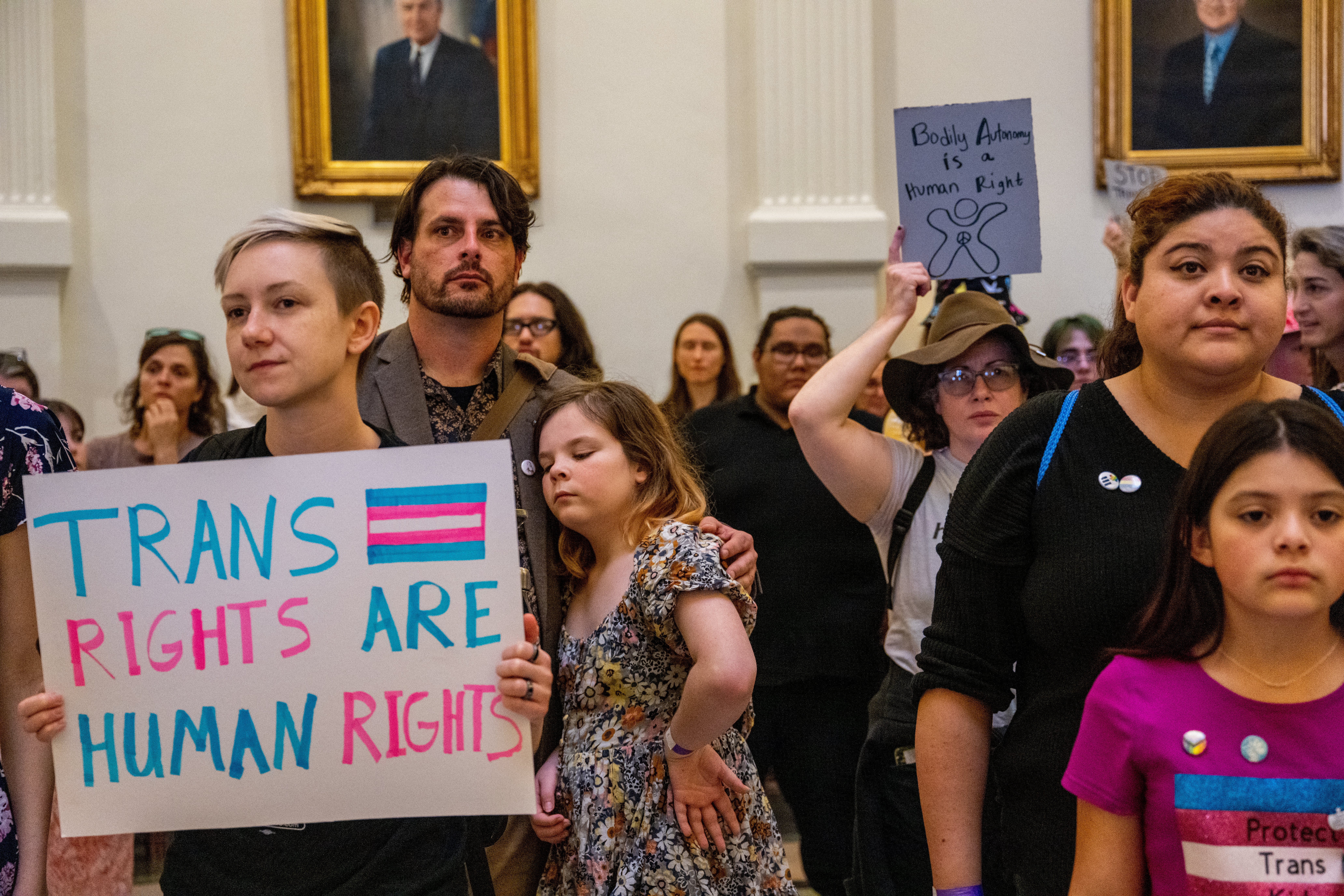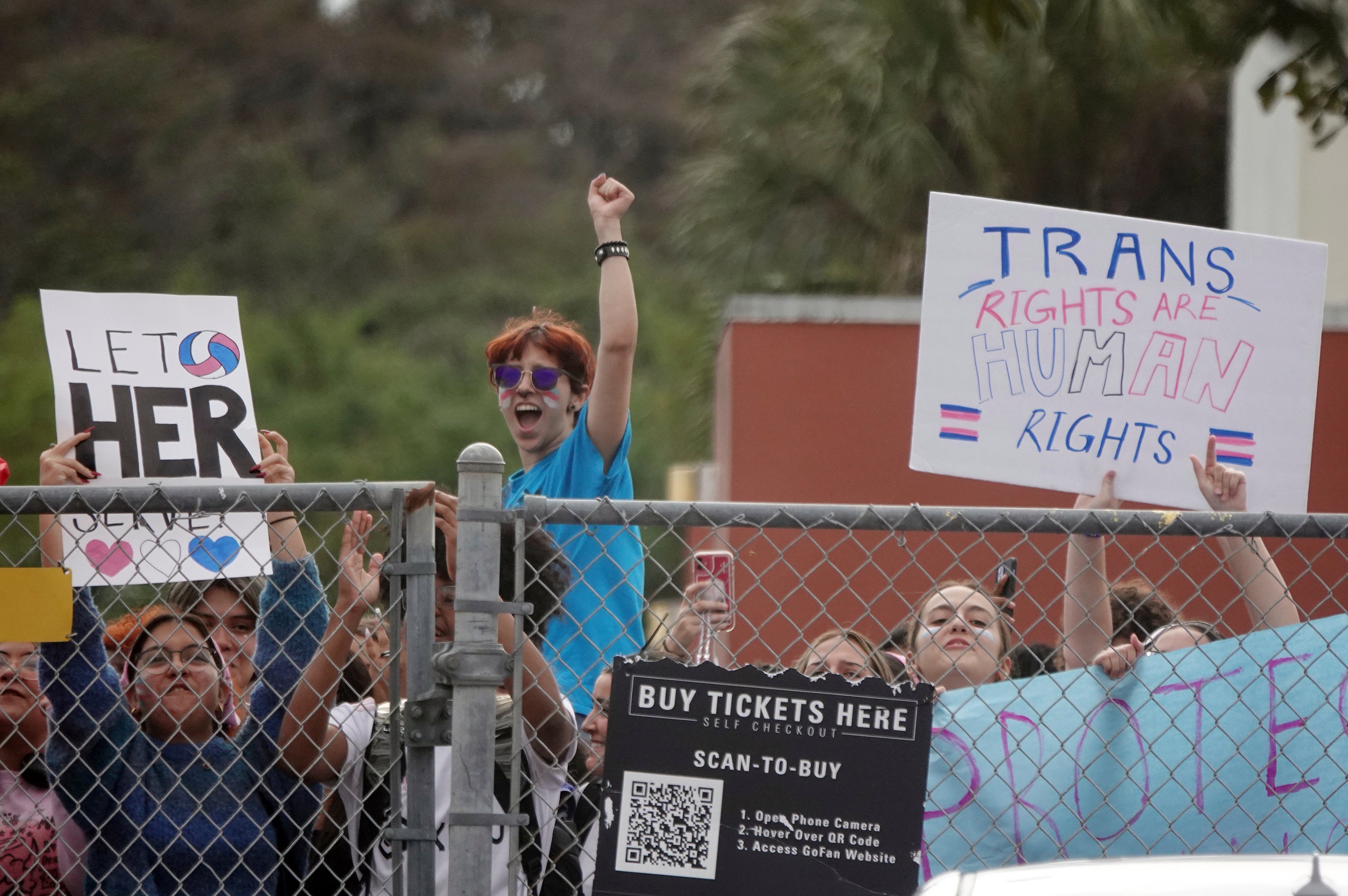Supreme Court will hear challenge to gender-affirming care bans for trans youth
More than 20 states have moved to block or restrict access to affirming healthcare for young trans people
Your support helps us to tell the story
From reproductive rights to climate change to Big Tech, The Independent is on the ground when the story is developing. Whether it's investigating the financials of Elon Musk's pro-Trump PAC or producing our latest documentary, 'The A Word', which shines a light on the American women fighting for reproductive rights, we know how important it is to parse out the facts from the messaging.
At such a critical moment in US history, we need reporters on the ground. Your donation allows us to keep sending journalists to speak to both sides of the story.
The Independent is trusted by Americans across the entire political spectrum. And unlike many other quality news outlets, we choose not to lock Americans out of our reporting and analysis with paywalls. We believe quality journalism should be available to everyone, paid for by those who can afford it.
Your support makes all the difference.The Supreme Court will hear a major case that could determine whether states can block transgender youth from receiving gender-affirming healthcare.
Nearly half of US states have restricted or banned young trans people from receiving affirming care treatments, triggering courtroom battles over trans rights across the country.
The Supreme Court’s announcement that it will hear an appeal from Tennessee marks the first time that it will hear oral arguments in a case stemming from right-wing-driven threats to trans healthcare, and it could open the door for other constitutional arguments over LGBT+ discrimination.
Oral arguments are expected in the court’s next term, which begins in October and ends in June 2025.
Last year, a federal appeals court upheld Tennessee law that blocks doctors from prescribing affirming care like puberty blockers, hormone therapy and surgeries to trans youth. That ruling was reversed by a panel of appeals court judges, whose ruling is now being challenged at the Supreme Court.
The ACLU and LGBT+ advocacy groups had initially sued to block Tennessee’s law on behalf of a group of trans teens and their families who argue that the state ban violates their 14th Amendment right to equal protections under the law.
They also argue that the law violates the right of parents to make healthcare decisions for their children.
President Joe Biden’s administration also joined the challenge.
In a brief to the Supreme Court urging the justices to take up the case, Solicitor General Elizabeth Prelogar warned that the law “is part of a wave of similar bans preventing transgender adolescents from obtaining medical care that they, their parents, and their doctors have all concluded is necessary.”

“The future of countless transgender youth in this and future generations rests on this Court adhering to the facts, the Constitution, and its own modern precedent,” according to Chase Strangio, deputy director for transgender justice at the ACLU’s LGBTQ & HIV Project.
Civil rights groups have argued that the Supreme Court’s key 2020 ruling in Bostock v Clayon County affirmed that anti-trans discrimination is a form of sex discrimination, an argument echoed in federal court rulings across the country that have struck down similar gender-affirming care bans.
“These bans represent a dangerous and discriminatory affront to the well-being of transgender youth across the country and their Constitutional right to equal protection under the law,” Strangio said in a statement. “They are the result of an openly political effort to wage war on a marginalized group and our most fundamental freedoms.”
Guidelines from major medical organizations including the American Academy of Pediatrics, the American Medical Association, American Academy of Child and Adolescent Psychiatry and American Counseling Association, among others, agree that such care is clinically appropriate for trans youth experiencing gender dysphoria. Medical guidelines generally say that affirming surgeries should only be approved for people ages 18 and older.

In their ruling last year, appeals court judges in the Tennessee case — including Donald Trump-appointed Judge Amul Thapar and George W Bush-appointed Judge Jeffrey Sutton — said they would not defer to mainstream medical authority “for the same reason we would not defer to a consensus among economists” about the constitutionality of labor laws.
Hundreds of bills aimed at LGBT+ people, particularly young trans people, have been filed in nearly every state within the last several years, according to an analysis from the Human Rights Campaign. The nation’s largest LGBT+ civil rights group found that roughly 38 percent of trans youth ages 13-17 live in the 24 states have have restricted or banned care.
That flood of legislation and the volatile political debate surrounding it have also negatively impacted the mental health of an overwhelming majority of young trans and nonbinary people, according to polling from The Trevor Project and Morning Consult.

Join our commenting forum
Join thought-provoking conversations, follow other Independent readers and see their replies
Comments